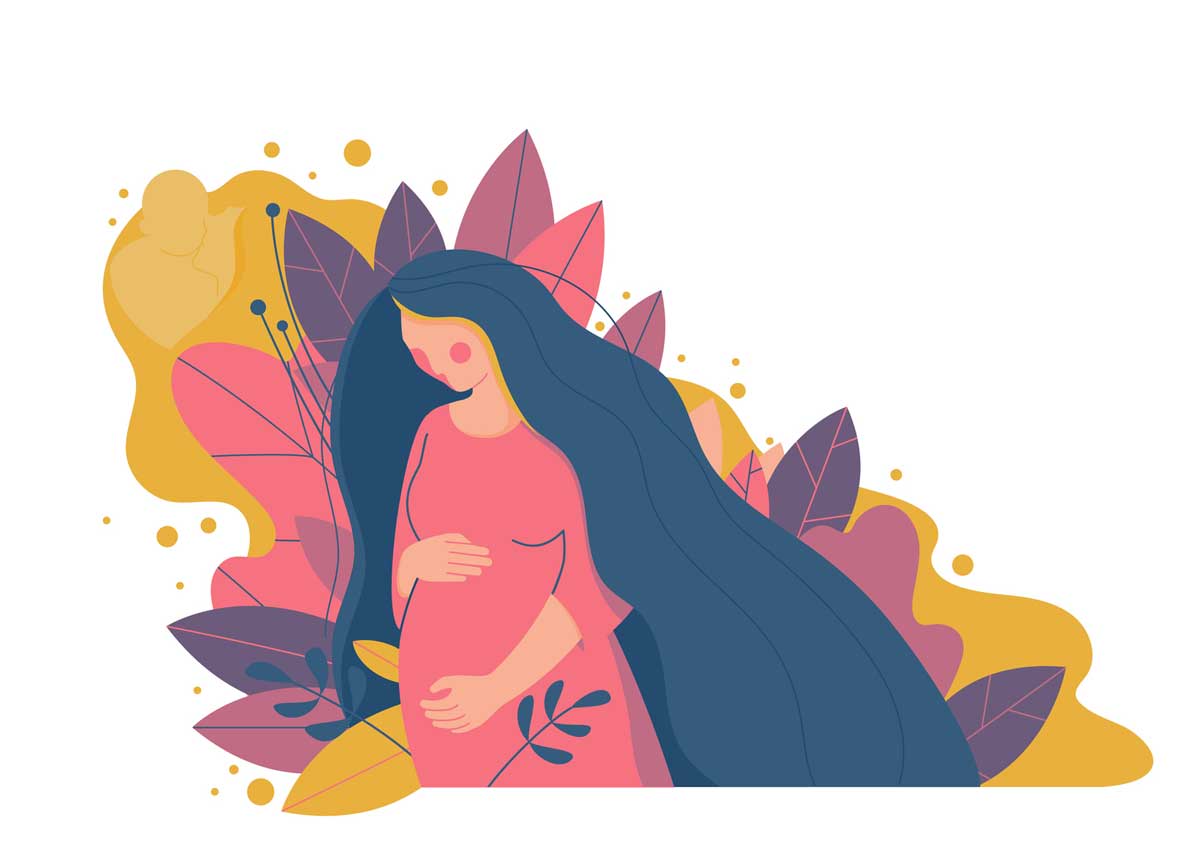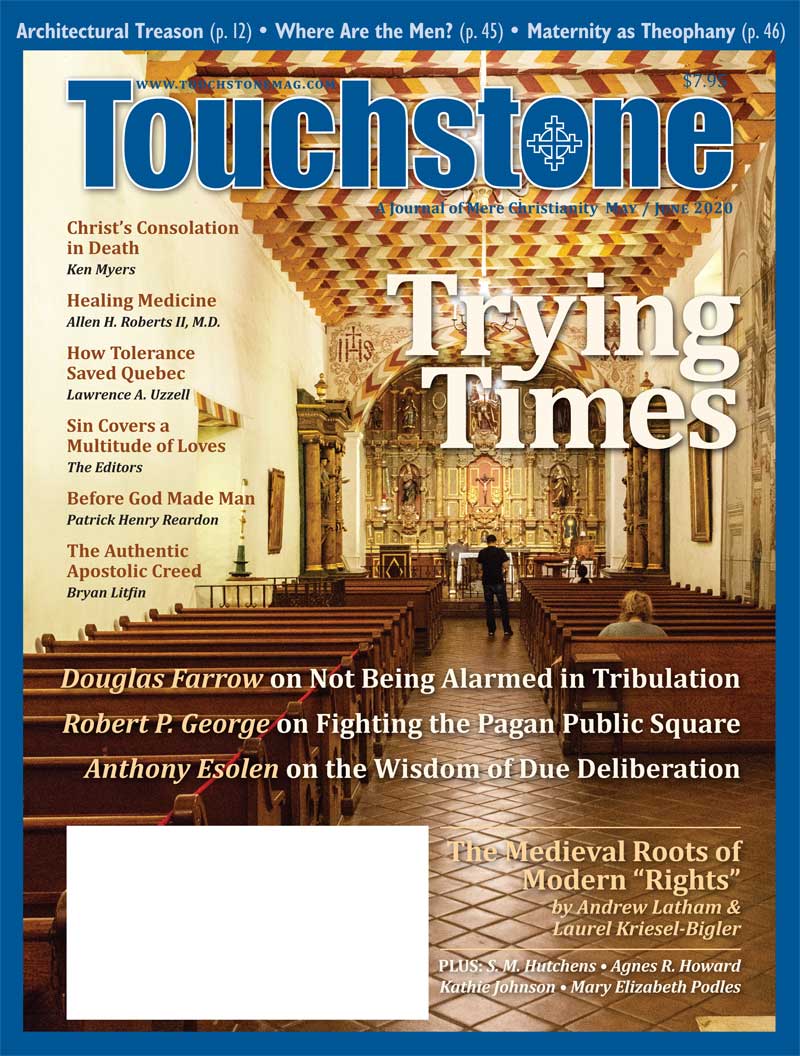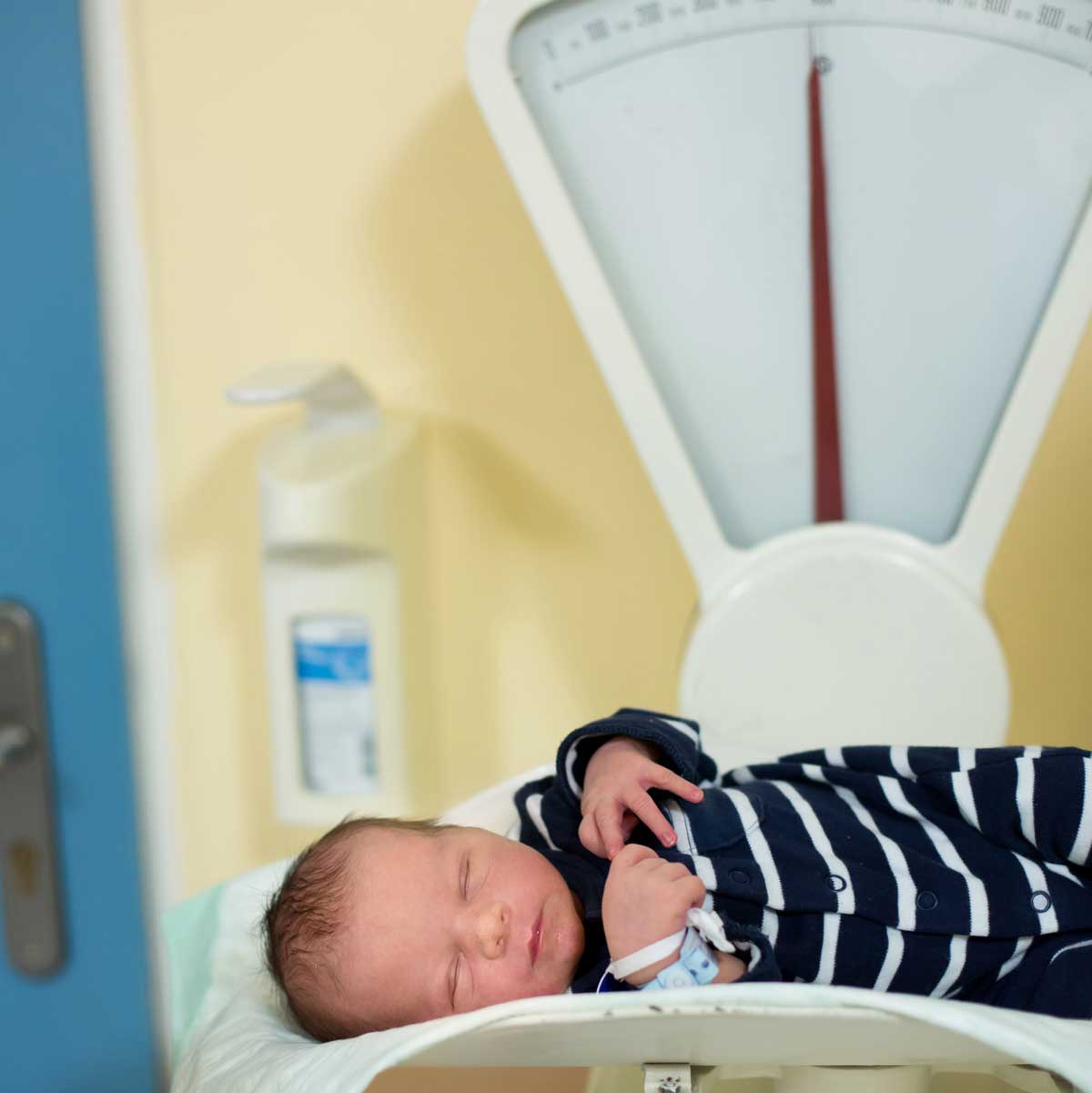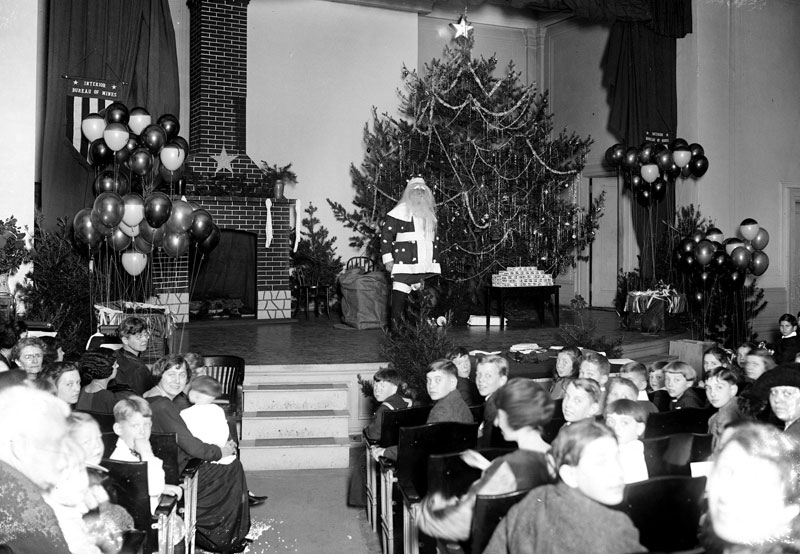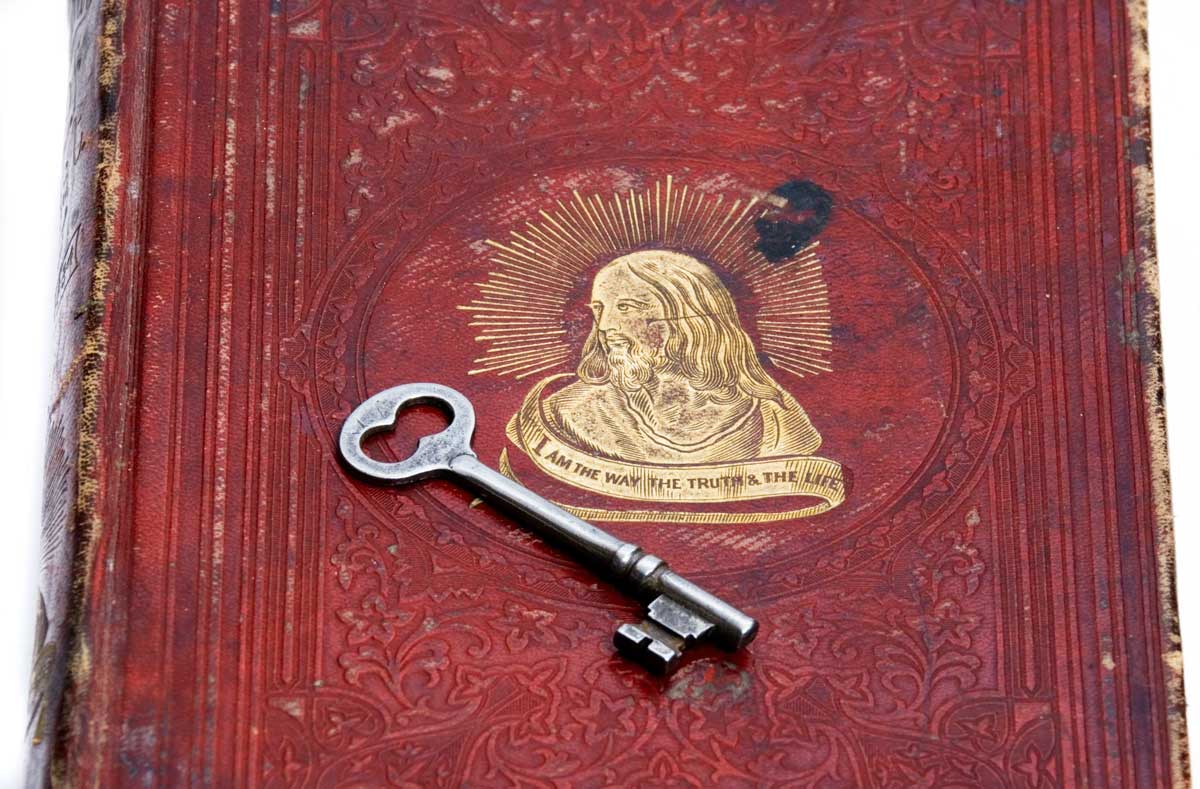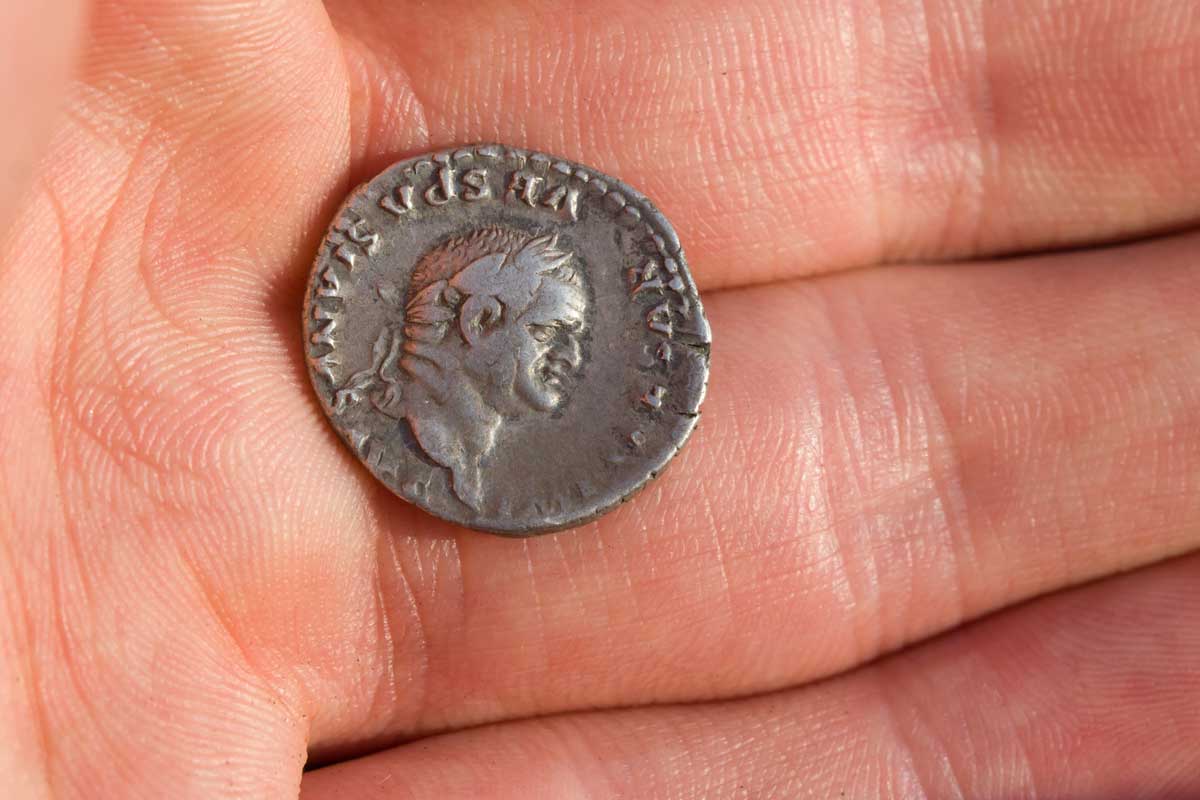Book Reviews
Maternity as Theophany
Maternal Body: A Theology of Incarnation from the Christian East by Carrie Frederick Frost
Paulist Press, 2019
(107 pages, $17.95, paperback)
Fertile Ground: A Pilgrimage Through Pregnancy by Laura S. Jansson
Ancient Faith Publishing, 2019
(318 pages, $18.95, paperback)
iewed by Agnes R. Howard
It may seem too obvious to be worth saying that pregnancy is a curious spiritual status: the condition of having two (or more) bodies, brains, and eternal souls in a space usually occupied by one. Just so, we might imagine that the best theological minds of the ages would have bent their exertions to puzzling this through. Instead, it turns out that wise treatment of this experience has been wanting until recently in current culture high and low, but also, disappointingly, in the theology and scholarship of the past. We have much to celebrate, then, in the nearly simultaneous arrival of two thoughtful books considering pregnancy from an Eastern Orthodox perspective.
By "we," I mean you, dear reader, since I will say even more vehemently than do these two able writers that the manner of human emergence into the world must not be a topic of interest only to new moms but to all of us. That includes all who have been brought into life by someone's efforts on their behalf, and all who believe in the Incarnation. Both Carrie Frederick Frost and Laura S. Jansson convey deep respect for ecclesiastical tradition even while acknowledging that it was a lack—a surprising, uncharacteristic lack—in their tradition that occasioned their scholarship on this topic. That response to a felt need, to compose a coherent, theologically inflected approach to childbearing rather than finding one at hand ready for recovery or practical application, determines the shape of both books, one formed by the writer's training as a theologian, the other by the writer's work as a doula.
Focus on Icons
Frost, professor of theology at St. Sophia Ukrainian Orthodox Seminary, was a graduate student at the University of Virginia when she discovered she was pregnant with triplets. She turned to her church tradition for counsel. She was disappointed to find that "motherhood is not a topic that has been taken up for deep theological reflection in the Orthodox tradition." She credits the Christian East with reverence "for pregnancy in general" but not in the particular, actual way it unfolds. Worse, when those privileged to study theology have turned to birth, they sometimes have allowed distaste or fear of the female body to overwhelm better judgment. Some Orthodox services and prayers positively do "not affirm motherhood as a vocation and did not affirm the maternal body."
Getting birth right is fundamental to a right theology of the body, so the task of her book "is just a matter of the maternal body being integrated into that theology." Frost thinks Orthodoxy may be well-positioned to help others appreciate the magnitude of maternity because of its rich understanding of the Incarnation, its veneration of icons recalling God's blessing of matter, and its recognition of the body as the "workshop" where humans grow closer to and more like God.
What Frost could not find in her church's theology she discovered in its practice. She looks to practice—with icons, prayers, hymns, and feasts—and finds resources on the good of childbearing. Icons are her focus, as they doubly demonstrate the significance of birth. The affirmation of matter implied in the process of birth underlies the use and veneration of icons altogether. "That Christians would use the materials of the created world to fashion images of their savior and saints makes perfect sense" to the author because "God took on matter in order to appear in the world of his creation." Mary, whom Christians regard as the Theotokos, the Birthgiver of God, is "at minimum, functionally foundational to the Incarnation, and she is also foundational to the icon . . . her maternal body led to iconography."
Frost organizes her book around the stages of childbearing: conception, pregnancy, birth, postpartum, and breastfeeding, choosing an icon for each to help explain physical and theological meaning. She remains grateful to Orthodoxy even when doctrine disappoints, deeming elements in it that slight motherhood as "out of alignment with the church's profound incarnational theology" rather than as revealing an anti-maternal stance inherent to Orthodoxy. Her chapters therefore take pains to "harmonize" them.
The first icon-focused chapter, on conception, features one depicting Mary's parents, Joachim and Anna, and blessing marital love and sexuality. Anna suffered infertility before Mary arrived. Here Frost criticizes some Orthodox handling of infertility, miscarriage, and stillbirth, with its suggestion that mothers are at fault, and Orthodox churches' failure to minister to people mourning these losses. The next chapter, on the short side, emphasizes the physical character of pregnancy as it studies the embrace of Mary and her cousin Elizabeth in an icon of the Visitation. For birth, icons depicting the Nativity vary, an opportunity for Frost to laud Orthodoxy's accommodation of different views and to urge women to look to Mary as a model. On breastfeeding, Frost marvels at how a mother's body becomes real food for nursing infants. She regrets that Orthodox icons, favoring a metaphorical take on Mary feeding her infant son, sometimes strangely display an anatomically incorrect breast.
Agnes R. Howard is adjunct assistant professor of humanities in Christ College, Valparaiso University, Valparaiso, Indiana, and author of Showing: What Pregnancy Tells Us about Being Human (Eerdmans, 2020).
subscription options
Order
Print/Online Subscription

Get six issues (one year) of Touchstone PLUS full online access including pdf downloads for only $39.95. That's only $3.34 per month!
Order
Online Only
Subscription

Get a one-year full-access subscription to the Touchstone online archives for only $19.95. That's only $1.66 per month!
bulk subscriptions
Order Touchstone subscriptions in bulk and save $10 per sub! Each subscription includes 6 issues of Touchstone plus full online access to touchstonemag.com—including archives, videos, and pdf downloads of recent issues for only $29.95 each! Great for churches or study groups.
Transactions will be processed on a secure server.
more on Family from the online archives
more from the online archives
calling all readers
Please Donate
"There are magazines worth reading but few worth saving . . . Touchstone is just such a magazine."
—Alice von Hildebrand
"Here we do not concede one square millimeter of territory to falsehood, folly, contemporary sentimentality, or fashion. We speak the truth, and let God be our judge. . . . Touchstone is the one committedly Christian conservative journal."
—Anthony Esolen, Touchstone senior editor





